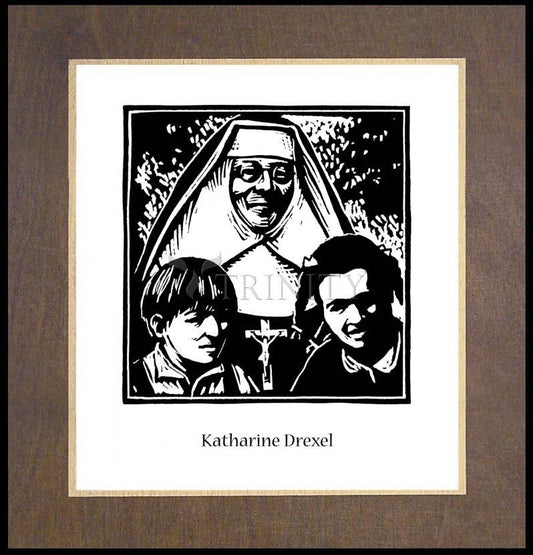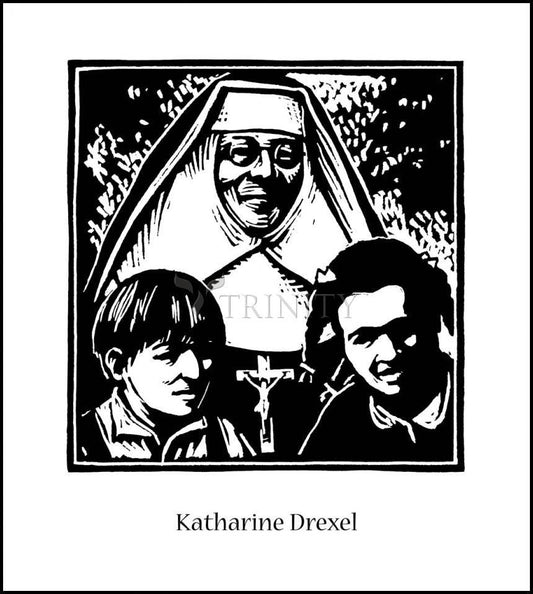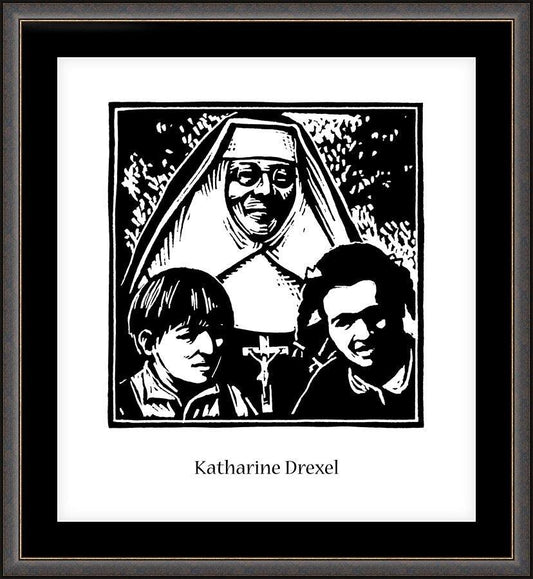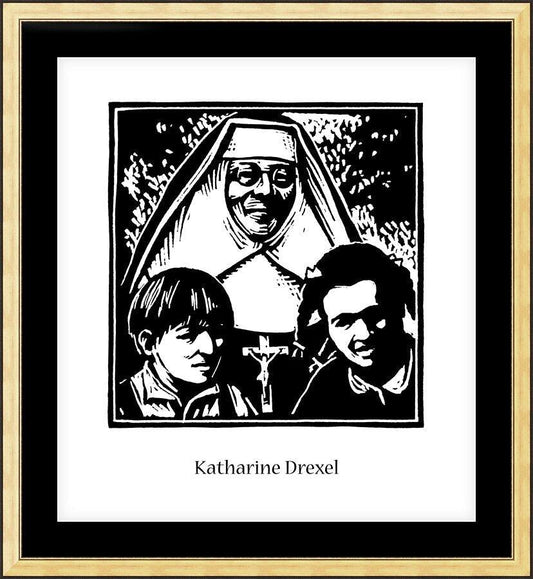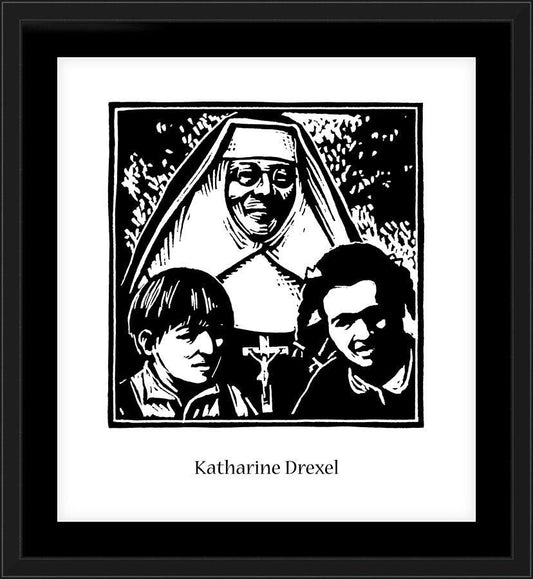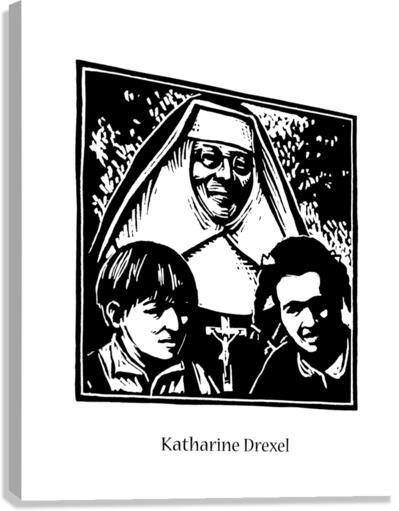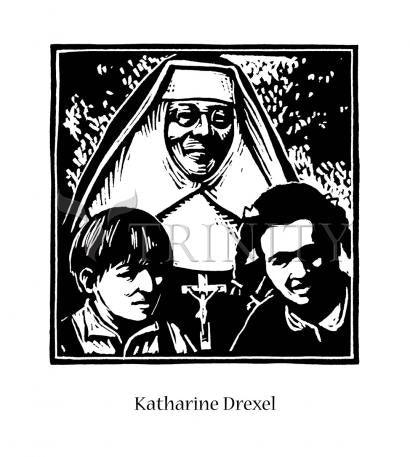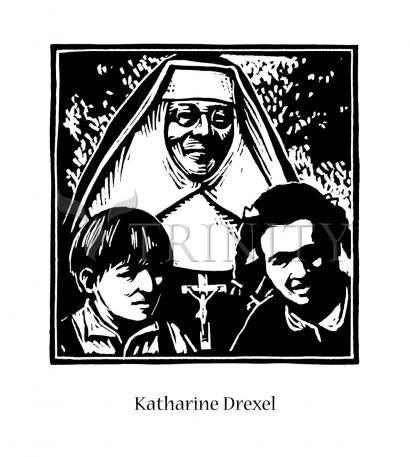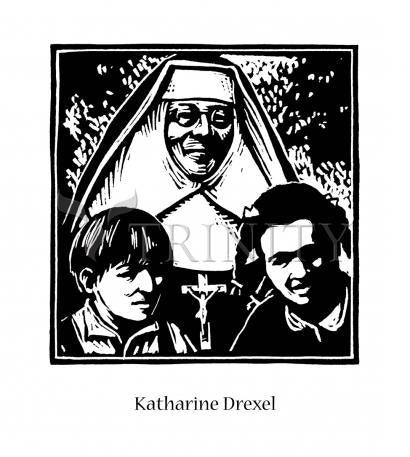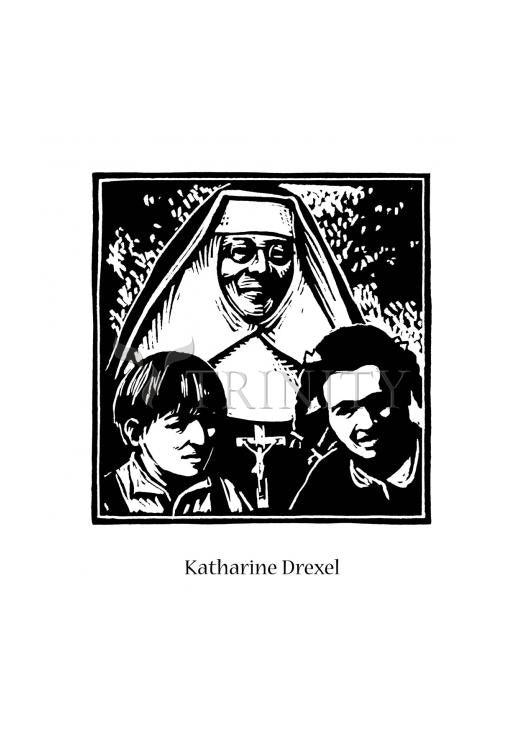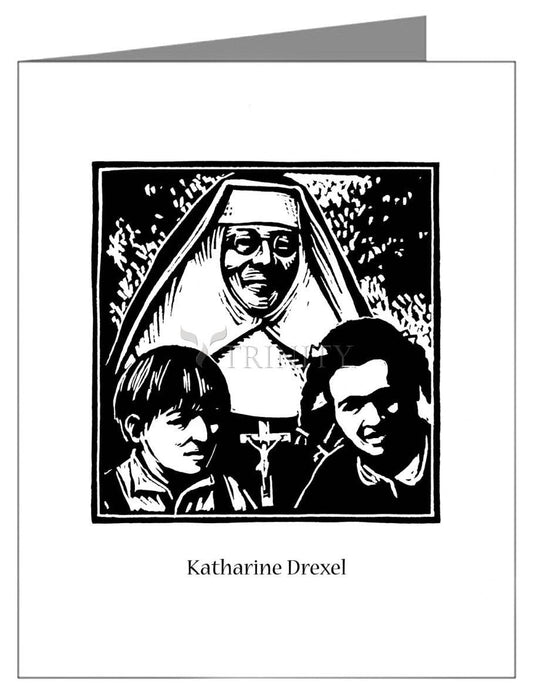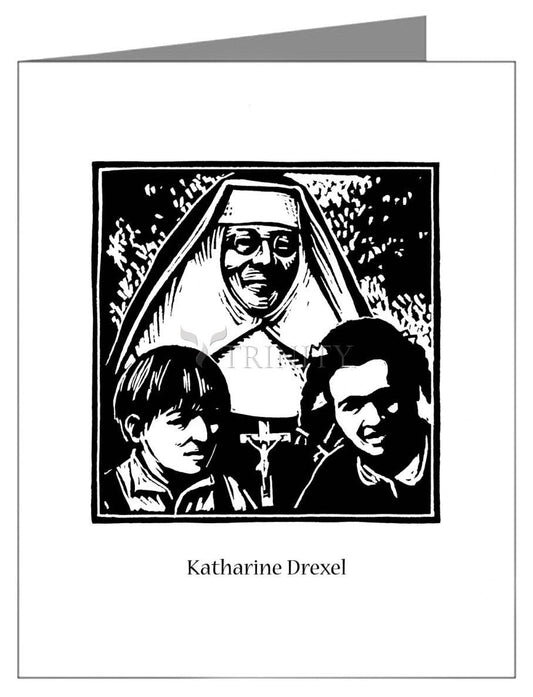Katharine Drexel's story is rich, overflowing and, quite frankly, mind- boggling. Her story goes far beyond the millions of dollars she invested in establishing and supporting 65 schools, churches and centers in 21 states through her religious order, the Sisters of the Blessed Sacrament. But in an age in which Americans obsess over million-dollar game shows, Powerball lotteries and the stock market, the money Katharine Drexel gave away is a powerful and countercultural sign that, indeed, she was someone on a very different, spiritual mission.
Consider this: When her father, Francis Drexel, died in 1885, the high-powered banker left behind a $15.5 million estate that was divided among his three daughters"Elizabeth, Catherine (Katharine's birth name) and Louise. About $1.5 million went to several charities, leaving the girls to share in the income produced by $14 million"about $1,000 a day for each woman. In current dollars, the estate would be worth about $250 million.
Over the course of 60 years"up to her death in 1955 at age 96"Mother Katharine spent about $20 million in support of her work, building schools and churches and paying the salaries of teachers in rural schools for blacks and Indians. Louise Drexel Morell, her younger sister, contributed millions more to similar causes. Elizabeth, the eldest sister, died in 1890 in premature childbirth, one year before Catherine formed the Sisters of the Blessed Sacrament for Indians and Negroes, in Bensalem, Pennsylvania, just outside Philadelphia.
Francis Drexel crafted his will carefully. His daughters controlled the income from the estate, and upon their deaths, the Drexel inheritance would flow to their children. Drexel did this to prevent his unmarried daughters from falling prey to "fortune hunters." Neither Elizabeth nor Louise, however, had children, and the will stipulated that if that were to happen, upon his daughters' deaths, the money would be distributed to several religious orders and charities"the Society of Jesus, the Christian Brothers, the Religious of the Sacred Heart, a Lutheran hospital and others.
Drexel, of course, had no way of knowing that his "Kate" would enter religious life in 1889 and two years later found her order. Thus, after 1955, the Sisters of the Blessed Sacrament no longer had the Drexel fortune available to support their ministries. Dr. Norman Francis, president of Xavier University in New Orleans, considers Mother Katharine's longevity, especially in light of a serious heart attack she suffered in 1935, to be another miracle.
"There were any number of miracles that the Lord provided through her, and we've always called Xavier a miracle," says Francis, whose university sends more African-American graduates to medical school than any other university in the country. "Xavier is a miracle not just for all that it has done but for the mere fact that it has survived and thrived. Under normal circumstances, that shouldn't have been the case. If she had died at the normal age of 70, which at the time would have been a big age, Xavier would have struggled. [But] God allowed her to live until she was 96, and we had that interest available for many more years. It's still a struggle every day, but people know we have a meaning."
Born: November 26, 1858 at Philadelphia, Pennsylvania, USA
Died: March 3, 1955 of natural causes at the motherhouse of the Sisters of the Blessed Sacrament, Bristol Pike, Bensalem, Pennsylvania
Beatified: November 20, 1988 by Pope John Paul II
Canonized: October 1, 2000 at Rome by Pope John Paul II



